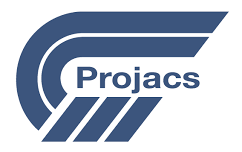
Unconscious Bias Training
Course ID: 2509010101421ESH
Course Dates : 01/09/25 Course Duration : 5 Studying Day/s Course Location: London, UK
Language: Bilingual
Course Category: Professional and CPD Training Programs
Course Subcategories: Operations and Process Excellence
Course Certified By: ESHub CPD & LondonUni - Executive Management Training
* Professional Training and CPD Programs
Leading to:
Executive Diploma Certificate
Leading to:
Executive Mini Masters Certificate
Leading to
Executive Masters Certificate
Certification Will Be Issued From :
From London, United Kingdom
Course Fees: £5,120.30
Vat Not Included in the price. VAT may vary depending on the country where the course or workshop is held.
Click to Pay
Date has passed please contact us Sales@e-s-hub.com
Course Information
Introduction
Unconscious bias refers to the automatic, mental shortcuts individuals use to process information and make decisions. These biases are shaped by cultural norms, personal experiences, and societal influences, often operating below the level of conscious awareness. While they help the brain manage vast amounts of data efficiently, unconscious biases can lead to skewed perceptions, discriminatory practices, and inequitable outcomes in professional settings. For organizations striving to foster inclusive environments, addressing unconscious bias is not merely an ethical imperative but a strategic necessity. This course delves into the science behind unconscious bias, its manifestations in workplace dynamics, and actionable strategies to mitigate its impact.
The relevance of unconscious bias training has surged in recent years, driven by heightened awareness of diversity, equity, and inclusion (DEI) issues across industries. A 2022 McKinsey report highlighted that companies with diverse leadership teams outperform their peers by 36% in profitability. Yet, despite the growing emphasis on DEI initiatives, many organizations struggle to translate intent into tangible results. Gaps persist in understanding how unconscious biases manifest in hiring, promotion, team collaboration, and customer interactions. By bridging these gaps, this course empowers participants to create equitable systems and foster cultures of belonging.
Consider the case of a global tech company that implemented unconscious bias training for its recruitment teams. Prior to the intervention, female candidates were consistently underrepresented in technical roles. Post-training, evaluators became more mindful of language used in job descriptions and interview questions, leading to a 25% increase in female hires within six months. Such examples underscore the transformative potential of addressing unconscious bias. However, success hinges on equipping professionals with both theoretical knowledge and practical tools to drive change.
This course draws on established frameworks such as the Implicit Association Test (IAT), developed by Harvard University researchers, and the Social Identity Theory proposed by Henri Tajfel. These theories provide a robust foundation for understanding how biases form and influence behavior. Additionally, insights from behavioral economics and organizational psychology enrich the curriculum, ensuring participants gain a multidimensional perspective. The integration of real-world applications ensures that theoretical concepts are grounded in actionable strategies.
For individuals, mastering the content of this course enhances interpersonal skills, decision-making capabilities, and leadership effectiveness. Professionals equipped to recognize and counteract unconscious biases contribute to fairer, more innovative workplaces. Organizations, in turn, benefit from improved employee engagement, reduced turnover, and enhanced brand reputation. As industries increasingly prioritize inclusivity, the ability to navigate bias becomes a competitive advantage.
Ultimately, this training invites participants to embark on a journey of self-awareness and systemic transformation. By confronting uncomfortable truths about ingrained biases, attendees will emerge better prepared to champion equity and inclusion. Whether you are a seasoned executive, a frontline manager, or a rising talent, this course offers invaluable tools to align your actions with your values—and drive meaningful progress in your organization.
Objectives
By attending this course, participants will be able to:
Analyze the psychological mechanisms underlying unconscious bias and their implications in professional contexts.
Evaluate common forms of bias, including affinity bias, confirmation bias, and gender bias, using evidence-based frameworks.
Apply structured techniques to identify and interrupt biased behaviors in recruitment, performance reviews, and team interactions.
Design inclusive policies and practices tailored to organizational needs and compliance requirements.
Implement communication strategies that promote empathy, respect, and accountability in diverse teams.
Assess the impact of unconscious bias mitigation efforts through measurable metrics and feedback loops.
Synthesize best practices from industry case studies to develop a personalized action plan for fostering inclusivity.
Who Should Attend?
This course is ideal for:
HR managers seeking to enhance diversity and inclusion initiatives within their organizations.
Team leaders and supervisors responsible for managing diverse groups and promoting equitable practices.
Consultants and trainers tasked with designing and delivering DEI programs.
Educators and facilitators aiming to cultivate inclusive learning environments.
Executives committed to embedding inclusive leadership principles at all levels of their organizations.
These groups will find the course particularly valuable as it provides them with the tools to address systemic inequities and improve workplace dynamics. While prior exposure to DEI concepts is beneficial, the course is structured to accommodate beginners, intermediate learners, and advanced practitioners alike. The content progresses from foundational knowledge to advanced application, ensuring relevance for participants at varying stages of their professional development.
Training Method
• Pre-assessment
• Live group instruction
• Use of real-world examples, case studies and exercises
• Interactive participation and discussion
• Power point presentation, LCD and flip chart
• Group activities and tests
• Each participant receives a 7” Tablet containing a copy of the presentation, slides and handouts
• Post-assessment
Program Support
This program is supported by:
* Interactive discussions
* Role-play
* Case studies and highlight the techniques available to the participants.
Daily Agenda
Daily Schedule (Monday to Friday)
- 09:00 AM – 10:30 AM Technical Session 1
- 10:30 AM – 12:00 PM Technical Session 2
- 12:00 PM – 01:00 PM Technical Session 3
- 01:00 PM – 02:00 PM Lunch Break (If Applicable)
- Participants are expected to engage in guided self-study, reading, or personal reflection on the day’s content. This contributes toward the CPD accreditation and deepens conceptual understanding.
- 02:00 PM – 04:00 PM Self-Study & Reflection
Please Note:
- All training sessions are conducted from Monday to Friday, following the standard working week observed in the United Kingdom and European Union. Saturday and Sunday are official weekends and are not counted as part of the course duration.
- Coffee and refreshments are available on a floating basis throughout the morning. Participants may help themselves at their convenience to ensure an uninterrupted learning experience Provided if applicable and subject to course delivery arrangements.
- Lunch Provided if applicable and subject to course delivery arrangements.
Course Outlines
Foundations of Unconscious Bias
Introduction to unconscious bias: definitions, origins, and prevalence.
Key theories: Implicit Association Test (IAT) and Social Identity Theory.
Common types of bias: affinity, confirmation, halo effect, and stereotyping.
Case study analysis: real-world examples of bias in action.
Day 2:
Manifestations in the Workplace
Bias in recruitment and selection processes.
Impact of bias on performance evaluations and promotions.
Microaggressions and their cumulative effects on workplace culture.
Interactive session: identifying biases in everyday scenarios.
Day 3:
Strategies for Mitigation
Techniques for interrupting bias in decision-making.
Structured approaches to inclusive hiring and promotion.
Role of allyship and advocacy in combating bias.
Workshop: developing bias-interrupting scripts for difficult conversations.
Day 4:
Building Inclusive Systems
Designing inclusive policies and practices.
Leveraging technology to reduce bias in HR processes.
Compliance considerations: legal and regulatory frameworks.
Group activity: creating an inclusion roadmap for your organization.
Day 5:
Measuring Progress and Sustaining Change
Metrics for assessing bias reduction efforts.
Feedback mechanisms and continuous improvement cycles.
Leadership accountability and cultural transformation.
Final project: presenting a tailored action plan for your organization.



















































